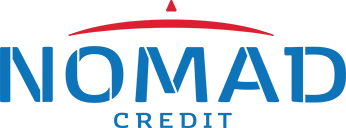Table of Contents
- Top Benefits of Business Analytics Masters in Canada
- Top Universities in Canada for Business Analytics
- Study Requirements
- Average Tuition Fee
- After Canada’s Master’s in Business Analytics: Top Job Opportunities
- Frequently Asked Questions
Have you been dreaming of taking your business analytics higher education experience to the next level, but the lack of guidance gets you stressed?
Remember this line from The Chronicles of Narnia: The Lion, the Witch and the Wardrobe:
Some journeys take us far from home. Some adventures lead us to our destiny.
The road to business success is always fraught with risks. Having a more profound foundational knowledge empowers your future journey. That’s why we recommend you explore the master’s in Business Analytics program in Canada. A hub of global talents and top-ranking institutions, you will encounter a unique blend of academic excellence and business exposure in Canada, taking you to exciting career opportunities.
We’ll discuss the top benefits, institutions, eligibility requirements, cost of study, and job opportunities for a master’s in Business Analytics in this blog.
Top Benefits of Business Analytics Masters in Canada
Studying in Canada is expensive for many, as the tuition fees and living costs are high compared to domestic education. The educational costs are worth it when we compare it with the top benefits of getting a Business Analytics master’s degree from Canada.
| A growing market Business analytics has a global scope of growth, benefitting graduates to get employment after graduation. | Top-notch educational practices Canada’s educational excellence is reflected in its advanced curriculum and expert professors. Students enjoy a top academic environment to foster their business acumen. |
| Financially better job opportunities Business analytics graduates are offered a competent salary and have job opportunities in many fields. The average salary in Canada is 53,000 – 100,000 CAD. | Specialized curriculum for diverse industries Canadian universities incorporate the latest findings and academic tools into the business curriculum, providing a transformative effect on students. |
| Global networking opportunities Canada’s multicultural environment is fertile for networking. Make business connections with global leaders and empower your career journey. | Step into work permit and immigration pathways International students settling in Canada after their education is a common practice. Having in-depth business knowledge, strategic thinking, and industry understanding simplifies your path. |
Top Universities in Canada for Business Analytics
Canada’s top universities for Business Analytics are globally recognized institutions where business leaders are created. They boast an updated curriculum, access to the latest tools and technologies, a multicultural environment, and top faculty.
| University | QS Rankings 2024 for Business Analytics, Canada |
| Desautels Faculty of Management – McGill University | 1 |
| Haskayne School of Business, University of Calgary | 2 |
| Sauder School of Business, University of British Columbia | 3 |
| Schulich School of Business, York University | 4 |
| Sobey School of Business – Saint Mary’s University | 5 |
| John Molson School of Business, Concordia University | 6 |
Study Requirements
Students must meet the specified study requirements to get admission to Canada. Here is a general list of requirements for admission to the Business Analytics master’s program.
| Bachelor’s degree A completed undergraduate degree in a related field, such as mathematics, statistics, computer science, economics, or business, is usually required. | Quantitative coursework Many programs expect applicants to have completed undergraduate courses (a MOOC course or as a paper in your undergraduate degree) in statistics, calculus, or linear algebra. |
| Standard GPA A competitive GPA is essential. The specific GPA requirement varies by university, but a strong academic record is crucial. If your scores are not in GPA, use our GPA conversion tool. | GMAT or GRE Most programs require either a GMAT or GRE score. While some schools may offer waivers for applicants with strong work experience or specific academic backgrounds, these tests are generally expected. |
| IELTS, TOEFL, PTE, or Duolingo Proof of English language proficiency is mandatory for international students. The minimum scores required vary by university. | Work experience Some programs prefer applicants with relevant work experience in analytics or business. |
| Letters of Recommendation 2 or 3 strong letters from professors or employers are a must and can enhance your application. | Statement of Purpose A well-written SOP outlining your academic and career goals is crucial. Take help as Nomad Credit guides in crafting a personalized SOP. |
| A Resume or CV Submit a detailed resume highlighting your education, work experience, and achievements. | Other documents Provide additional documents if you are asked for specific documents, such as a gap-year explanation letter. |
Average Tuition Fee
The tuition fee for a master’s in Business Analytics ranges from 20,000 – 88,000 CAD in Canada. The full-time course is usually 12 – 24 months long.
| University | Average Tuition Fee | Duration |
| Desautels Faculty of Management – McGill University | 57,600 CAD | 12 months |
| Haskayne School of Business, University of Calgary | 26,406 CAD | 48 months |
| Sauder School of Business, University of British Columbia | 62,658 CAD | 12 months |
| Schulich School of Business, York University | 88,350 CAD | 12 months |
| Sobey School of Business – Saint Mary’s University | 49,450 CAD | 16 months |
| John Molson School of Business, Concordia University | 20,000 CAD | 24 months |
After Canada’s Master’s in Business Analytics: Top Job Opportunities
The blooming job market is a headliner for Business Analytics master’s graduates. Many choose to work in Canada after studies to start their career there. The average salary for Business Analytics postgraduates in Canada ranges from 53,000 – 100,000 CAD.
| Job Role for Business Analytics Graduate | Average Salary in Canada |
| Data Analyst | 53,000 – 73,000 CAD |
| Business Analyst | 58,000 – 82,000 CAD |
| Data Scientist | 75,000 – 100,000 CAD |
| Market Research Analyst | 60,000 – 100,000 CAD |
| Financial Analyst | 54,000 – 74,000 CAD |
Data: Glassdoor, 2024
The opportunity to gain work experience after studies is an attractive addition to choosing Canada for a master’s in Business Analytics. Canada’s reputation for openness, safety, and a welcoming environment are cherries to the cake. Furthermore, work opportunities and the ease of getting permanent residency are prompting reasons to choose Canada for your higher education.
Excited to start your educational journey to Canada? Choose Nomad Credit as your partner for study abroad. We look in the same direction as you after evaluating your profile to offer customized guidance. Get our support in finding your schools, funding your studies, crafting an SOP, and applying for a study visa without paying a penny.
Elevate your career dreams with us. Connect with Nomad Credit today!
Frequently Asked Questions
Is Canada a good choice for a master’s in Business Analytics?
Yes. Canada is a good choice for a Business Analytics master’s, given the top institutions, academic excellence, and job opportunities there.
Do Business Analytics master’s graduates get jobs in Canada?
Business Analytics is a course that has good job opportunities in Canada. Master’s graduates of Business Analytics get job roles like Data Analyst, Business Analyst, Data Scientist, Market Research Analyst, and Financial Analyst in Canada.
What is the average salary for Business Analytics graduates in Canada?
The average salary for Business Analytics postgraduates in Canada ranges from 53,000 – 100,000 CAD. It can be higher, depending on your skills and experience.
What is the average GPA for a Business Analytics master’s in Canada?
The GPA requirement for admission varies in universities in Canada. On average, a GPA of 2.0 – 4.0 is recommended for admission.
Is Business Analytics in demand in Canada?
Business analytics is in demand in Canada’s job market. A positive factor is the job openings in diverse industries, enhancing job opportunities. It is important to prepare well if your aim is a top job offer.

